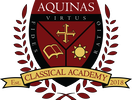PHILOSOPHY OF EDUCATION
Many have written on the nature of education, its natural and supernatural ends and how to accomplish them, and many continue to do so. Rather than reinvent the methods of ‘classical ed’ we will be content to stand on the shoulders of giants. Quoting Laura Berquist, who herself is taking a cue from Dorothy Sayers, “…the goal of education should be to teach children how to think; we want them to learn the art of learning. Then they will be equipped for life; whether or not they learn all the subjects possible in school, they will be able to learn any subject when it becomes necessary or desirable, if they know how to learn.” (Designing Your Own Classical Curriculum, 13).
An integrated, classical, liberal arts education does this best. It liberates, freeing the learner from ignorance and from being constrained to mere repetition of proposed facts. In seeking truth in all things, one is free to experience the joy of wonder, in discovery of the world we have been given – how it works, and how we work in it. In this search for the nature of created things – that is inquiring into their causes down to their first principles, and striving to know them as they are – reason is exercised and strengthened (Physics, Bk.1 Ch. 1 184a9). This process develops certain virtues, notably the intellectual virtues, while additional virtues will come to be known from the authors and historical characters the students meet in their studies. Within this education, instructors immerse their students in what is true, good, and beautiful. Such a foundation prepares the student for success in any college, trade school, or other course of life, and gives those paths purpose and meaning, thus enabling one to find joy and gratitude in them. In addition, it gives him the tools to know himself and to know his neighbors, enabling good communication and harmonious cooperation for a well-ordered and joyful society.
Further, the temporal order is for the sake of the supernatural order, and all of our work in this life is for knowing, loving, and serving God, and being happy with Him in the next. However, by our own weakness, the great tools of right learning and the natural freedom it produces can tend toward perpetuating our spiritual darkness. The remedy to guard against this tendency, especially to pride, is found in the light of Faith. But "[s]ince the Faith liberates the believer from error in his submission to its teachings, it both guides and strengthens his intelligence in the performance of those activities which constitute his very life as a thinker; and man,
since he is distinguished by rationality, lives above all through the living act of thinking." (A Proposal for the Fulfillment of Catholic Liberal Education, p.11) As this document goes on to say, the grace of God illuminates and guides a complete education, which grace as described by St. Augustine is given "not only that we discover what ought to be done, but also that we do what we have discovered – not only that we believe what ought to be loved, but also that we love what we have believed…" (On the Grace of Christ, cc.13) Put more succinctly and familiarly by St. Anselm, "credo ut intelligam" – I believe that I may understand.
Thus, the entire endeavor of learning how to learn must include the development of virtue and holiness under the guiding light of the Catholic Faith, principally because it aims at God Himself, but also that the true student especially cultivates humility and gratitude. From this, charity is made possible, and we can truly say with St. Augustine that we "love what we have believed."
